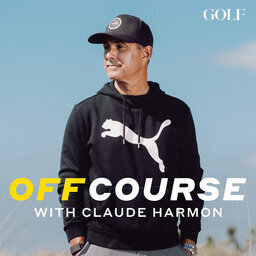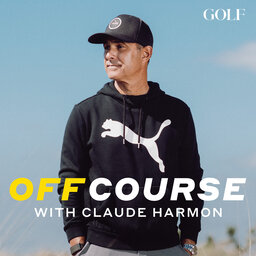Marina Alex Interview: The importance of her second LPGA Tour win, how big events help grow the women’s game and the core differences between the PGA and LPGA Tours
Off Course turns 1! To celebrate, Claude is at the U.S. Women’s Open and welcomed two-time LPGA Tour winner Marina Alex to the pod. Coming off a recent win at the Palos Verdes Championship she talks how satisfying that second win was for her, the importance of big events in growing the women’s game and the stark differences between the PGA and LPGA Tour.
Follow Claude to submit questions, enter giveaways and keep up with the latest Off Course updates on Instagram at @ClaudeHarmon3
Thanks to our partners —
Rapsodo, a mobile launch monitor you can get for the fraction of the price of others, is giving our listeners a code to try it out. Go to rapsodo.com/offcourse and use the code OFFCOURSE for $100 off your purchase.
ADP uses data-driven insights to design HR solutions to help you and your business work better, smarter, more efficiently. So, you can think beyond today and have more success tomorrow. ADP. Always designing for HR, talent, time, benefits, payroll and people.
In 1 playlist(s)
Off Course with Claude Harmon
Golf is a very simple game that tends to confuse smart people. In 'Off Course' we look to simplify i…Social links
Follow podcast
Recent clips

J.R. Smith Interview: Swish on going back to school, playing collegiate golf and winning championships with LeBron
50:04

Dave Phillips Interview: Jon Rahm — his game, ascension to World No. 1, relationship with Phil and what amateurs can learn from his swing
1:11:00

Mito Pereira Interview: How he prepared for his first PGA Championship, his surprise encounter with Tiger and the growth of the game in Chile
1:07:10
 Off Course with Claude Harmon
Off Course with Claude Harmon